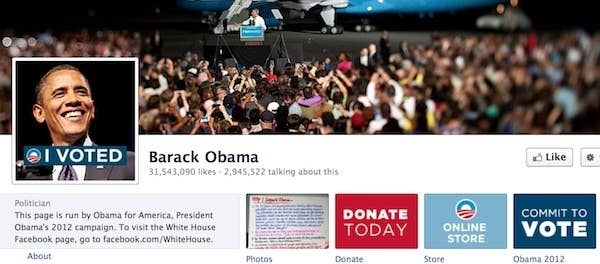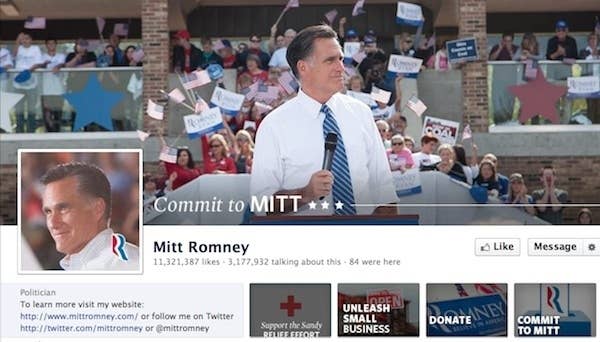
The extent to which social media actually influences the political landscape has been hotly debated in recent years. Now communications scholars have found that while looking at campaign websites seems to increase people's sense that they can influence politics, blogging and sharing on Facebook don't.
Communications scholars Yushu Zhou and Bruce Pinkleton surveyed over 400 undergraduates at Washington State University about how much attention they paid to a variety of media sources including conventional (ie print or television) media, campaign and government websites, blogs, microblogging services like Twitter, social networks like Facebook. They also surveyed how interested and involved the students were in politics, as well as their feelings of "political efficacy," asking them how much they agreed with statements like "My vote makes a difference" and "I have a real say in what the government does." And they measured students' own online political expression — how much they wrote political blog posts or shared political stories on social networks, for instance.
They found that students who were already involved in politics were more likely to pay attention to media, both conventional and online. And students who paid attention to conventional media or to campaign or government websites were more likely to feel that their votes mattered. However, opinion blogs and social networks didn't seem to influence their feelings of efficacy. Interestingly, neither did expression — students who shared their views online weren't necessarily confident that those views had a real influence on government. The study authors say this might be because people who spend a lot of time online "have less confidence in the political system and conventional media coverage." They didn't look at actual voting specifically, but their findings suggest there might be a lot of people talking about politics online without actually voting.
Pinkleton, a communications professor at Washington State University, says that for people who are already politically engaged, social and other online media present a huge opportunity, not just to get information but also to create a community of like-minded people. But it's not necessarily going to make people who aren't already interested in politics automatically interested.

Critics of online media have long resisted the notion that they can produce real social change. And Pinkleton casts Facebook and other online sources of information as more of a tool for people who are already active than a producer of activism in its own right: "it's a lot easier to organize on Facebook, but at the end of the day you still need people who are motivated, and the Internet's not going to change that." He added that he's "not convinced that internet has produced the revolution people predicted."
That said, Pinkleton does note that the internet provides opportunities for campaigns that never existed before. Online media may be a particularly good way for a candidate to interact with his or her base, since politically engaged people are definitely engaging online. While his study didn't address party affiliation, he thinks the Obama campaign may have the edge in terms of using online media to mobilize voters, because of Obama's popularity with and outreach to young people. But of course, the Internet isn't just for the young — Pinkleton notes that "a lot of the old divisions of internet use are falling away" as older people and those with less education get online (though high school dropouts still do so in smaller numbers).
"From the candidate's perspective," he says, "it's smart to be out there" engaging with potential voters on Facebook and the web. But neither campaigns nor researchers have quite figured out yet how to translate online attention into actual votes.
